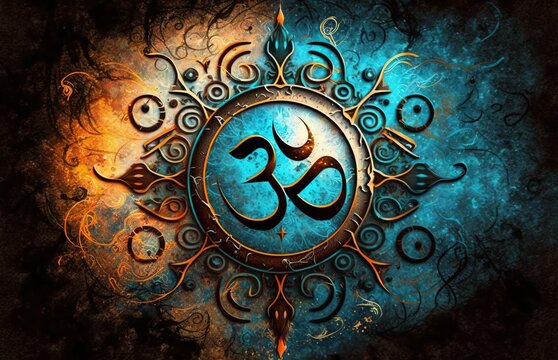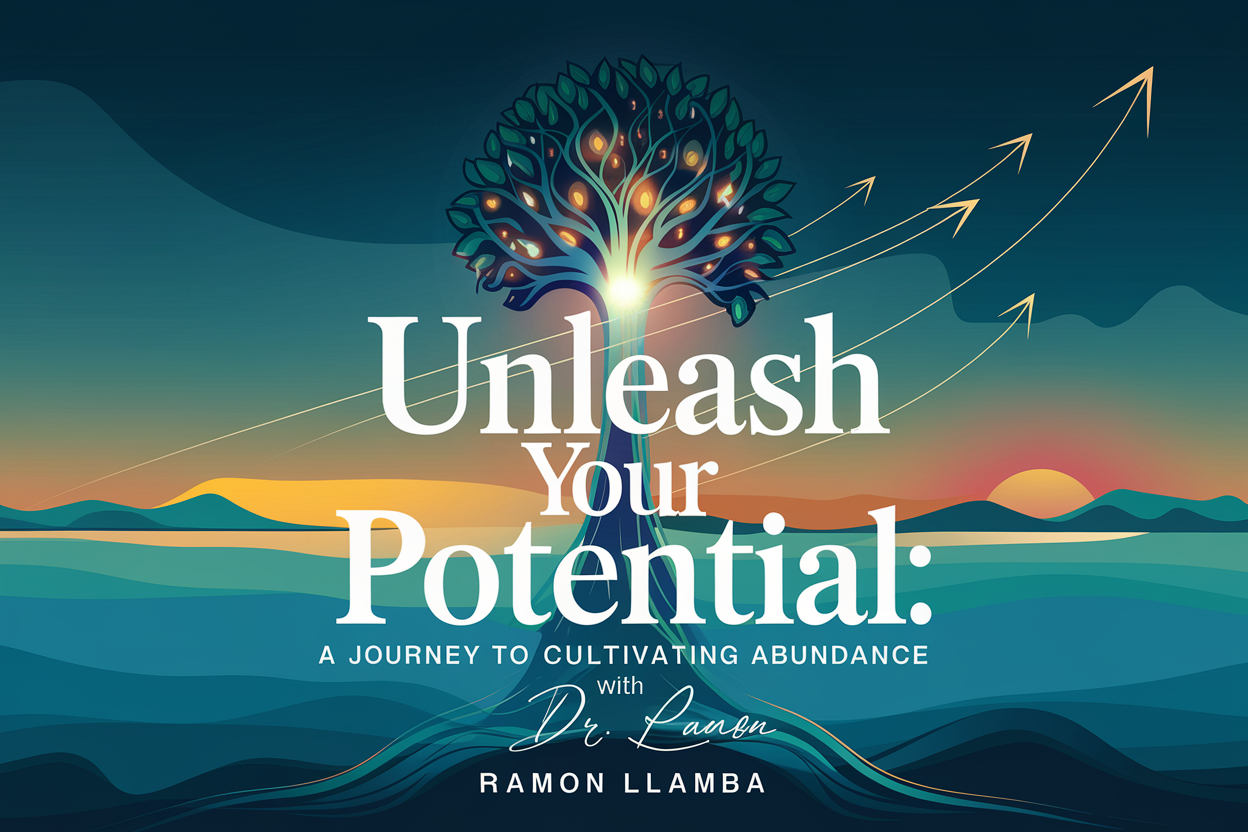
Date : 08 March 2025
Karma healing is a profound spiritual practice that focuses on understanding and resolving the karmic patterns influencing our lives and relationships. Karma, stemming from the principle of cause and effect, suggests that our actions, both positive and negative, create an energetic impact that ultimately returns to us in some form. This cosmic law of balance governs our interactions with the world, shaping our experiences and opportunities for growth.
The concept of karmic healing holds immense importance in personal and spiritual development. By addressing unresolved karmic issues, we can eliminate negative patterns, promote healing, and pave the way for transformational growth. In this blog, we will discuss how karma influences our lives and relationships, the importance of karma healing, the karma healing process, and how this is related to personal growth.
At Golden Age Isvara, we recognize the transformative power of karmic healing and offer dedicated retreats designed to guide you on this journey.
Karma plays a pivotal role in shaping our reality. The energetic seeds we plant through our actions, thoughts, and intentions ultimately determine the fruits we reap. Whether we realize it or not, we are constantly creating karma through every interaction we have and every choice we make. Sometimes, we are unaware of how deeply certain actions have impacted us or others, especially when these actions are rooted in past lives.
In relationships, karma can manifest as recurring patterns that seem to repeat regardless of the efforts we make to change. For example, we might find ourselves drawn to the same type of person or encounter similar conflicts repeatedly. These repeating patterns may be indicative of unresolved karmic debts, lessons that need to be learned before they can be released. Understanding this allows us to view difficult relationships not as burdens but as opportunities for healing and growth.
Karma also extends to our behavior. The way we respond to challenges and treat others can create a ripple effect that impacts our experiences. By cultivating positive karma through acts of kindness, generosity, and understanding, we can transform our surroundings and foster healthier, more fulfilling connections.
Understanding karmic patterns is the first step towards healing and personal growth. Being aware of our past actions and their impact on our present lives gives us the tools to take responsibility for our experiences. Healing karma is not about punishing ourselves or others; rather, it is about bringing awareness, compassion, and forgiveness to ourselves and those we may have hurt.
Healing karmic debts requires self-reflection, self-forgiveness, and a willingness to release any lingering resentment or guilt. This healing can occur through practices such as meditation, prayer, acts of service, and even through simple, conscious thoughts of gratitude and love. By clearing negative karmic patterns, we invite more positive energy into our lives, setting the stage for more harmonious and joyful relationships.
Through healing, we learn to transcend the negative impact of past actions and create a life aligned with higher principles of love, compassion, and understanding. As we work through our karmic debts, we create space for new opportunities, a deeper sense of self, and ultimately, spiritual evolution.
Karma healing, when approached with sincerity, patience, and a desire for growth, can lead to profound personal transformation. It empowers us to embrace the lessons from our past, enabling us to move forward in our lives with a renewed sense of clarity, purpose, and inner peace.
Dr. Ramon Llamba’s perspective on karma healing centers on the understanding that the soul is fundamentally energy, and the ultimate aim is moksha, or liberation. She posits that life experiences often result in portions of this soul energy remaining “unprocessed,” essentially emotional imprints left scattered across our timeline. This fragmentation leads to a sense of diminished self, where we may only access a fraction of our complete soul in the present moment.
The principle of action and reaction creates a complex web of memories within our conscious and subconscious minds, making it challenging to pinpoint the origin of any specific memory. Karma healing, therefore, involves the process of reclaiming and reintegrating these fragmented soul energies, processing the emotional residues they hold, and ultimately achieving a more complete and liberated state of being. This journey emphasizes the interconnectedness of our experiences and the critical role of our memories in shaping our energetic landscape.
Interested in understanding how to shift your karmic journey? Dr. Ramon Llamba’s video offers valuable insights.
Steps to Recognize and Release Karmic Patterns
➤ Self-Reflection: Identify recurring themes or challenges in your life and recognize patterns that seem to repeat.
➤ Acknowledge Past Actions: Accept responsibility for your past actions and understand how they have shaped your present reality.
➤ Practice Forgiveness: Forgiving yourself and others is a crucial step in releasing karmic burdens.
➤ Engage in Positive Actions: Counteract negative karma by engaging in acts of kindness, generosity, and compassion.
➤ Energy Cleansing Techniques: Practices such as meditation, energy healing, and affirmations can help clear karmic blockages.
➤ Seek Spiritual Guidance: Working with a mentor, spiritual healer, or therapist can provide additional support in the healing journey.
Self-awareness is the foundation of karma healing. By becoming conscious of our thoughts, behaviors, and emotions, we can understand their karmic origins and make conscious choices to transform them. Acceptance plays a vital role in this process, as resisting or denying past actions only reinforces karmic cycles. True healing occurs when we acknowledge our karmic debts without judgment and take proactive steps toward growth and transformation.
Karma is not meant to be a punishment but a tool for learning and evolution. Every challenge we face carries a lesson that can aid in our personal development. As we heal and resolve karmic issues, we gain wisdom, emotional resilience, and a heightened sense of self-awareness. This process enables us to create a more fulfilling and harmonious life, allowing us to align with our true purpose and spiritual destiny.
By embracing the principles of karma healing, we can break free from negative cycles, cultivate positive energy, and achieve a state of inner balance and peace.
Karma, in its essence, is the principle of cause and effect. Our actions, thoughts, and intentions create imprints that shape our present and future experiences. Karmic healing is the process of addressing these imprints, releasing negative patterns, and fostering positive transformation. Here are some effective techniques:
Meditation and mindfulness are foundational practices for karmic healing. By cultivating awareness, we become observers of our thoughts and emotions, recognizing patterns that contribute to negative karma. Regular practice allows us to detach from these patterns, creating space for clarity and positive change. Mindfulness helps us stay present, reducing the accumulation of new negative karma by encouraging conscious actions. Gain clarity on your goals and develop a personalized action plan for success. Cultivate self-awareness, build resilience, and enhance your overall well-being.
Chanting and mantras utilize the power of sound vibrations to heal karmic blocks. Specific mantras are believed to resonate with particular energies, helping to clear negative imprints and promote inner peace. The repetition of sacred sounds can shift our vibrational frequency, releasing stagnant energy and fostering a sense of purification. Gain valuable insights into your thoughts, emotions, and behaviours. Develop effective coping mechanisms and cultivate emotional well-being.
Ho’oponopono is a very powerful ancient Hawaiian healing and problem-solving process, which releases memories that are experienced as problems. The practice of forgiveness is also an important part of it. The prayer has 4 sentences that need to be spoken in repentance with the intention of humility and forgiveness. Begin by saying “I am sorry”, “Please forgive me”, “I love you”, and “I thank you”. Repeat these 4 phrases with pure intent. This powerful technique allows us to cleanse Karma, purify the emotions, and the memories of past experiences that cause us to have negative reactions to people and circumstances. Develop financial literacy and create a sustainable financial plan. Achieve financial freedom and manifest abundance in all areas of your life.
Past life regression therapy involves accessing memories from previous incarnations to understand the root causes of current challenges. By exploring past experiences, we can identify karmic patterns that are influencing our present life. This understanding allows for emotional release, forgiveness, and the resolution of long-standing karmic debts. It is a powerful method for gaining insight and facilitating deep healing.
Reduce inflammation, boost circulation, and experience a surge of endorphins. Cultivate mental fortitude and overcome challenges with greater ease.
Energy healing modalities like Reiki and Pranic healing work on the subtle energy body, clearing blockages and restoring balance. These practices can address karmic imprints stored within the energy field, promoting physical, emotional, and spiritual well-being. By harmonizing the flow of energy, these techniques facilitate the release of negative karma and promote overall healing.
One of the most potent forms of karmic healing is through acts of compassion and forgiveness. Extending kindness to others and forgiving those who have wronged us generates positive karma, breaking cycles of negativity. Forgiveness, in particular, releases us from the burden of resentment and allows for emotional liberation. Acts of selfless service and compassion create positive ripples that contribute to personal and collective healing.
Karmic healing is not just about addressing past debts; it’s also about creating a balanced and harmonious present. By transforming our karma, we can achieve greater spiritual and emotional well-being.
Emotional balance is achieved by acknowledging and processing past traumas and emotional wounds. Techniques like emotional freedom technique (EFT), shadow work, and mindfulness can help release emotional blockages and create inner peace. By understanding the karmic roots of our emotional patterns, we can develop healthier coping mechanisms and cultivate emotional resilience.
Surrounding ourselves with positive influences, such as uplifting music, nature, and supportive relationships, can help align our energy with positivity. Practicing self-compassion and letting go of resentment and blame are essential for releasing past trauma. By focusing on positive intentions and actions, we create a brighter future.
Karma healing is an integral part of spiritual growth. By addressing our karmic debts and transforming negative patterns, we create space for spiritual awakening and expansion. It allows us to evolve beyond limiting beliefs and behaviors, aligning with our higher purpose. As we heal our karma, we deepen our connection to the divine and experience greater inner peace and fulfillment.
By integrating these techniques and principles into our lives, we can harness the transformative power of karmic healing and create a more positive and fulfilling existence.
The journey of karma healing is a profound exploration into the intricate tapestry of our actions, thoughts, and intentions. We’ve delved into the fundamental principles of karma, explored effective healing techniques, and addressed the importance of clearing karmic debt. Understanding and clearing karmic debt allows us to break free from the shackles of the past, paving the way for a more liberated and fulfilling present.
The essence of karma healing lies in self-awareness, self-love, and conscious living. By cultivating mindfulness, we become attuned to our thoughts and actions, making choices that align with our highest good. Practicing self-love and forgiveness releases us from the burdens of resentment and guilt, allowing for inner peace and emotional balance.
And to support you on this transformative path, we at Golden Age Isvara offer dedicated retreats designed to facilitate deep karmic healing. Our retreats provide a nurturing environment where you can immerse yourself in guided meditations, energy healing practices, all aimed at clearing karmic blocks and building spiritual growth. We believe in empowering individuals to take control of their karmic journey, and our retreats are structured to provide you with the tools and support you need to achieve lasting transformation. We invite you to explore our offerings and join us in creating a life of balance, harmony, and profound fulfillment.
To enrol for a 1-day Karma healing retreat with Dr. Ramon Llamba, register here –
https://pages.razorpay.com/WWKarmaHealing












